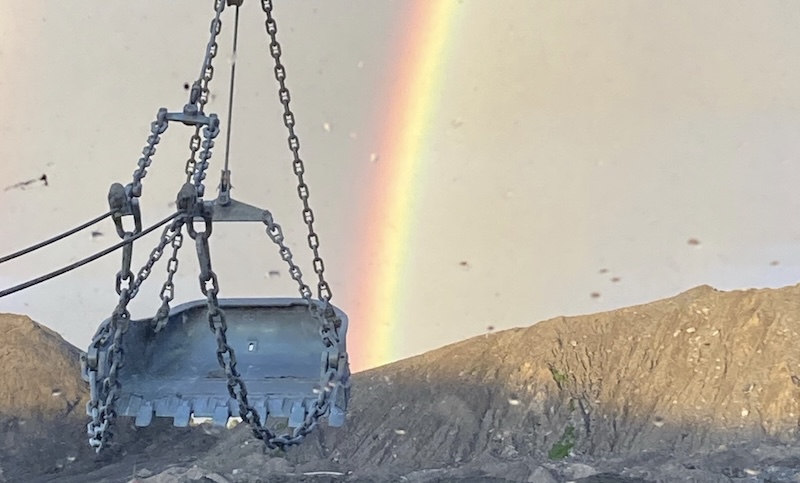It was the biggest coal fraud in Australian history, but ASIC buried the prosecution, contained it to one company, Terracom then paid directors’ legal bills. Stephanie Tran reports.
The corporate watchdog ASIC will pay $3.67 million to cover the legal costs of four TerraCom executives after losing its case against the Queensland coal miner, despite detailed evidence the company doctored coal quality test results to inflate profits.
Under an agreement lodged in the Federal Court, ASIC will pay:
-
$1.28 million to Danny McCarthy
-
$1.35 million to Nathan Boon and Craig Ransley
-
$1.03 million to Wal King
The payout follows a court finding that the ASX statements ASIC alleged were misleading did not amount to misleading or deceptive conduct under the Corporations Act. The decision brings the TerraCom saga to a close, but leaves serious questions about the regulator’s willingness and ability to tackle corporate fraud in the coal sector.
Independent MP Andrew Wilkie, who first aired allegations of coal test fraud in Parliament, told MWM:
“It is a mystery to me why TerraCom and other companies are not being pursued further over falsified coal testing results. That test results were routinely adjusted manually by at least one Australian testing laboratory is a fact. And that the beneficiaries of this manual adjusting were a number of Australian coal miners and exporters is a reasonable assumption in my opinion.”
A pattern of altered coal tests
The whistleblower at the centre of the case, Justin Williams, alleged that TerraCom’s management directed him to continue the practice of fraudulently altering certificates of analysis prepared by coal testing company ALS.
In a brief prepared by Ashurst for the PwC investigation into the allegations, Williams stated that CEO Danny McCarthy warned him not to be a “champion of good” and threatened to terminate him during his probation period if he refused to comply.
The PwC investigation later found that 12 out of 14 coal shipments analysed had altered results, artificially inflating their total value by more than $1.15 million. Four shipments worth $27 million would likely have been rejected under contract terms if the true quality results had been disclosed. The PwC report could find no legitimate explanation for the changes, noting they sometimes occurred within hours on the same day.
Table from PwC report on inconsistencies in coal testing results
One example cited in the PwC report involved the Medi Matsuura shipment in July 2018. An internal email shows a TerraCom staff member reviewing test results, stating that “these are the best results I can get for this cargo”. The initial Shipping Analysis Report recorded a net calorific value (NCV) of 5,364 kcal/kg, yet less than two hours later, a revised report for the same shipment showed an NCV of 5,468 kcal/kg.
An industry-wide problem
In an April 2020 statement to the ASX, ALS admitted that staff in several of its Australian laboratories had manually altered between 45% and 50% of coal quality certificates without justification, a practice that persisted for more than a decade. The admission revealed industrial-scale misconduct that directly benefited Australian coal exporters.
Despite this, there has been no sign of a broader industry crackdown.
An internal memo between TerraCom and its auditor EY, dated 27 February 2020, seen by MWM, shows the company sought to shift blame to ALS. The memo notes ALS’s public statement acknowledged other clients may also have had results altered without justification.
It argued this “indicates TerraCom is not the only company with a potential discrepancy and this therefore may be more of an ALS issue than a TerraCom matter”, adding that “the more customers involved the less likely TerraCom could instigate such an activity of falsely modifying coal certificates.”
The memo raises a critical question left unanswered by both the company and the regulator: why would ALS alter results on such a scale if not at the request, explicit or implicit, of its coal industry clients?
ASIC declined to comment when contacted.
Wilkie warned that failure to address the scandal undermines Australia’s reputation as a reliable exporter.
“Surely the Australian export coal industry’s reputation, and indeed Australia’s reputation more broadly as a reliable trading partner, is simply too important to have this whole sorry saga swept under the rug.
“I call on ASIC to quickly pick themselves up, dust themselves off and get cracking following their recent court loss. To do otherwise would, at best, show the regulator to be a toothless tiger. At worst, it would suggest that it’s indifferent to running what would be, in effect, a protection racket for big coal.”
Coal giants home free, ASIC buries TerraCom fake tests scandal
Stephanie is a journalist with a background in both law and journalism. She has worked at The Guardian and as a paralegal, where she assisted Crikey’s defence team in the high-profile defamation case brought by Lachlan Murdoch. Her reporting has been recognised nationally, earning her the 2021 Democracy’s Watchdogs Award for Student Investigative Reporting and a nomination for the 2021 Walkley Student Journalist of the Year Award.

